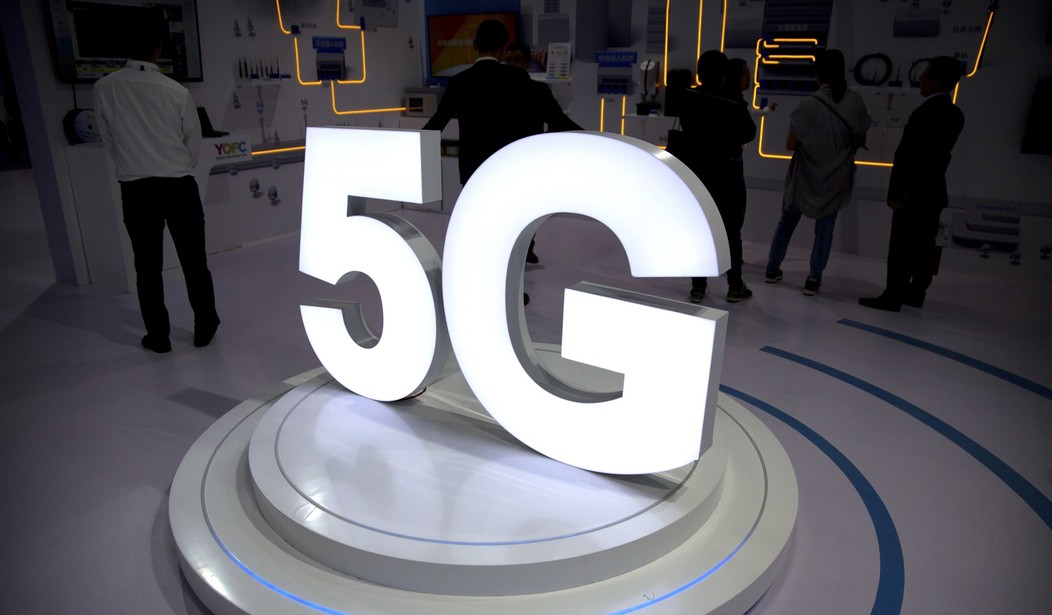Like mythical zombies, some bad policy proposals in Washington never seem to die. Such is the case with a proposed plan for the government to designate a single wholesaler for the electromagnetic spectrum the Department of Defense holds that will soon be allocated for 5G — what many critics are calling “nationalization.” Semantics aside, this government command-and-control approach to developing the United States’ next generation wireless network goes against the grain of the market-based approach that has kept America the global leader for tech and innovation for decades.
Since 2018, the Trump administration has considered centralizing the United States’ burgeoning 5G network in an effort to compete with China as a global leader in broadband for national security purposes. The Pentagon owns a large swath of the “mid-band,” frequencies of spectrum that can carry far more data than current cell phones. Cellular providers like AT&T, T-Mobile, and Verizon have already spent billions building out their own 5G networks using spectrum auctioned off by the FCC. However, the Pentagon has toyed with the idea of giving a contract to a single company to build the infrastructure needed to deploy its mid-band spectrum, then wholesaling access to wireless companies — thus sidestepping the market-based auction process that has been in the norm since 1994.
The Trump administration seemed to consider the idea on and off for over a year, but the president appeared to hammer the proverbial nail in the coffin in April 2019 when he said at a press conference with FCC Chairman Ajit Pai: “In the United States our approach is private-sector driven and private-sector led… Leading through the government, it won’t be nearly as good, nearly as fast.”
Apparently the coffin was not sealed tightly enough. Late last month, the idea of 5G nationalization was raised from the dead when the Pentagon released a request for information asking, among other things, how it could “own and operate 5G networks for its domestic operations.” Much of the new momentum surrounding the idea seems to have been initiated by the wireless company Rivada, which keeps close connections with many Trump allies including Karl Rove, Peter Thiel, Newt Gingrich and Brad Parscale. As I’ve reported in Townhall before, Rivada has been positioning itself as the Pentagon’s potential company of choice to build out the 5G network on the mid-band spectrum the Department owns.
Recommended
Rivada has pushed back on characterizing the wholesale scheme as “nationalization,” but at the very least it should be described as cronyism. The government has no role picking winners and losers by designating one firm as the sole beneficiary of what would be a contact in the hundreds of billions of dollars. Market forces are already working, with T-Mobile’s network already covering over 200 million Americans and competitors like AT&T and Verizon heavily investing in speed and technology.
From high speed rail to sports stadiums, taxpayers know all too well what boondoggles government pet projects would be. A centralized 5G network would most likely run up costs at public expense and run behind schedule. We’ve already seen several state and local governments try and fail with broadband projects, as Citizens Against Government Waste President Tom Schatz noted at FoxNews.com:
"Kentucky Wired is one of many troubled and failed state and municipal broadband projects, including UTOPIA, an 11-city project in Utah. One of those cities, Provo, spent $39 million on its network and ended up selling it to Google for $1. In October 2018, Kentucky state auditor Mike Harmon released a report that found the Kentucky Wired project is at least three years behind schedule and will cost $1.4 billion, or 20 percent more than its initial $1.17 billion budget."
A sudden shift to wholesale would mean gambling the future of American wireless on government competence — a bet that’s always sure to fail. Russia, Mexico, and South Africa have also tried developing various broadband nationalization schemes with little success. The time-tested wisdom holds true: The market approach driven by the profit motive works more effectively than government force at quickly and efficiently serving customers.
Even if 5G were somehow the exception in history, it is too late to turn back now. The White House and Pentagon announced their intention in August to make 100 megahertz of mid-band spectrum available for commercial use. Centralizing that spectrum now would either be reneging on licenses given to private businesses or crowding out competition by awarding it to one privileged company to act as a wholesaler — an incredible act of government favoritism after establishing the rules of the road.
Politicians shouldn't abandon American values in the name of preserving American values. The United States’ 5G network is being rapidly deployed through the market-driven model that's made our country the global leader in innovation. For the sake of sanity, let’s once again put the zombie idea of nationalized 5G to rest.
Casey Given is the executive director of Young Voices

























Join the conversation as a VIP Member